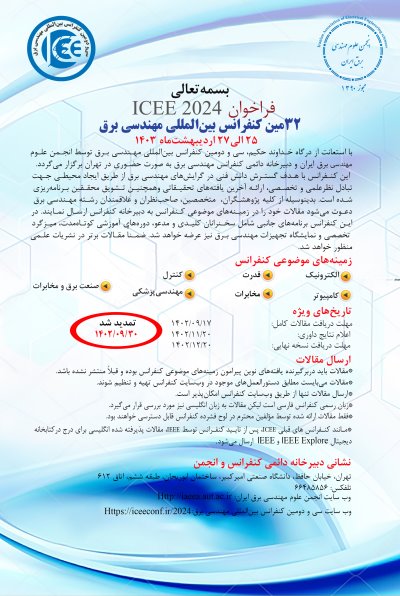0% Complete

نویسندگان :
کلمات کلیدی :
چکیده :
لیست مقالات بایگانی شده
نرجس احمدیان - بیژن ذاکری گتابی
Negin Shafinezhad - Maryam Mahmoudi - Hamid Abrishami - Vahid Baghishani
Mahmoud Zamani - Masoud Shafiee - Iman Zamani
Mahdieh Bozorgi - Mahmood Rafaei Booket - Mohammad Amin Zolghadr
فرانک صید جانی - سبا کرمی میرعزیزی - هادی اشعریون
Ali Fotokkiani - Ali Ghanbarian - Amirhossein Esteghamat - Ali Fotowat-Ahmady - Farzad Tahami
Alireza Mohammadi - Ali Doustmohammadi - Masoud Shafiee
Amirhosein Hoseini - Saeed Hosseinnattaj - Jafar Adabi
Amir Hossein Dabbagh - Hamed Arvani - Ebrahim Afjei
Reza Babaei - Asghar Akbari - Arash Moradi




